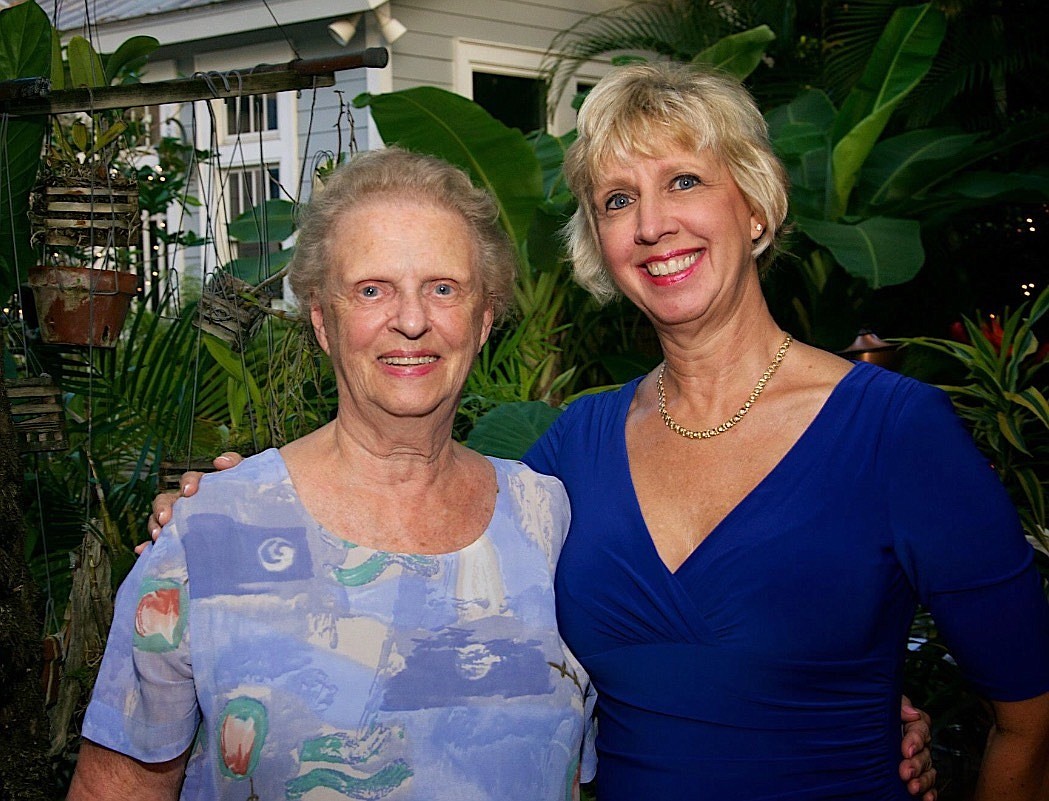- November 21, 2024
-
-
Loading

Loading

Freya Robbins knew it was important to have a plan for her mother, Ruth Davis, as Davis neared the last few months of her life. She couldn’t go into the situation blindly. Planning was one of the most important parts.
“I remember my mother said to me, ‘Freya, it sounds like you have this all figured out,’” said Robbins. “I coordinated my whole business out of her house. In the end, I was thinking of how it was my gift to take care of her. It was such an incredible gift to be able to do that for my mother.”
Davis was diagnosed with lung cancer in December 2016. Robbins moved her mother down to Sarasota shortly after and took care of her until she died in November 2018. She even moved into the house in the last two months to take care of her mother full time.
Robbins has experience many people in her situation might not by working at Zollinger Mediation, where she helps people with estate planning and elder mediation.
“We think it’s never going to happen to us. There are ways to plan and prevent these things and prevent calamity and chaos if you put a plan in place,” said Robbins. “And those plans need to be looked at and revised every year. I have a life plan and it states everything important. There can’t just be a plan after you die, but before you die, too. There is planning that needs to be done prior to that. Does anyone have any idea of the cost of living in a nursing home? $12,000 to $5,000 a month.”
There are options for every end-of-life plan. Robbins, like many others in the Sarasota area, used hospice care in the last few days.
Tidewell Hospice is the premier hospice in Sarasota and one of the options to chose from when thinking about the last couple of months spent alive. Hospice focuses on comfort care and has programs beyond the basic medical needs to treat symptoms.
Suzanne Barksdale works for Tidewell Hospice as the director of My Life, My Choice, an advanced-care planning program offered to the community.
My Life, My Choice is a program offered to all ages and stages of life, which allows participants to have directives, such as a living will, on how to make those final choices, like who will be someone’s health care surrogate.
Tidewell usually requires people to be in the end stages of life, typically in the last six months, with the recommendation of a physician.
But hospice might soon not be one of the only options for end-of-life care. Sarasota has 433 members in a group called Compassion and Choices, which advocates for medical aid in dying.
Medical aid in dying, which isn’t yet legal in Florida but is in eight other states, allows for people who have an illness that will kill them in six months and a recommendation from two physicians to take medicine to end their own life.
Winnie Downes, the Action Team Leader of Compassion and Choices in Sarasota, said she lives and breathes thinking about her end-of-life plan.
Downes said she and her husband have discussed how they want things handled and how to control these decisions to make their wishes known. She said they even have do not resuscitate (DNR) orders on the back of their front door so EMTs know their wishes if called to the house.
Compassion and Choices is more than just medical aid in dying. It asks people to think about all of their options as they plan the end of their life.
Dr. Joelle Vlahakis, the medical director of supportive care services at Sarasota Memorial Hospital, says it’s common for people to come to her in the last few weeks and months of their lives, without any kind of plan for palliative care.
“Most patients do not have a plan in place. Nobody wants to leave and people are hoping it doesn’t happen to us. It’s just human nature. I don’t get frustrated by it anymore,” said Vlahakis. “Here’s what I tell people: Begin with the end in mind. Think of the ideal death and how you would achieve that. If it’s not in a hospital, make sure you’re not in the hospital for that. Who would be your support system if you were at home? Most of us have a level of infirmity at that point. What if you can’t talk? What if you can’t walk? Can you deal with that at home? It takes thought and planning to get everything sorted out and know all of your options.”